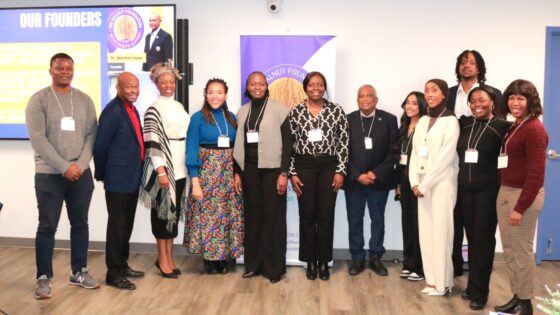on
BY SIMONE J. SMITH
“Japan logged fewer deaths last year for the first time in 11 years, which may be linked to a sharp fall in seasonal influenza infections as people took infection prevention measures amid the novel coronavirus pandemic.”
The bars are packed, the trains are crowded, and the mood is celebratory; if you were to go to Japan, it would be difficult for you to even tell that the country was in the middle of a global pandemic.
Many are baffled by what exactly is behind the miraculous recovery that was made in Japan. Unlike other places in Europe, Asia and North America, Japan has never had anything close to a lockdown, just a series of states of emergency. When there was a state of emergency, the measures were not lockdowns but requests that focused mainly on bars and eateries, which were asked to close early and not serve alcohol. People continued to commute on crowded trains, and attend sports and cultural events at stadiums with some social distancing controls.
I was contacted by one of our readers all the way in Japan. He had sent me an email sharing his disgust and dismay at what he was seeing. After reading what he had sent, I knew it was imperative to speak with him. After finally figuring out our time zones, I had a chance to speak with him, and what he told me not only shocked me, but also actually made me disappointed that I was living in Canada.
Throughout the pandemic, the government has systematically misrepresented the risk to Canadians by providing out-of-context numbers. By withholding important context, using extremely fear-inducing language, and de-emphasizing the most important parts of the story, mainstream media in Canada has succeeded in telling exactly the opposite story told by the facts.
Many of the public health measures were clearly a violation of long-established pandemic planning guidelines. They should never have been used. Others were measures that were only appropriate to extremely severe epidemics – the highest levels on the scale. Despite these measures, and the push for vaccination, our COVID-19 cases are going up again, and people are still getting very sick. How is this possible when we are supposed to have the best healthcare system in the world? What has Japan done right that most other countries have done wrong?
Jaime Paquin decided to move to Japan about fifteen years ago. He has made a life there, and established himself in the wine and spirit industry. He expressed his frustration with what he was seeing in his home country, and wanted ALL Canadians to know that what we are going through is unnecessary, and tyrannical.
“It’s been a major contrast to what Canadians have been subjected to,” Jaime shares with me. “As I mentioned, after about five weeks in March/April 2020 when many things were closed such as gyms, everything else was open as usual. The masks are everywhere, but not where it really counts. You will see people wearing masks in their cars and on the street, yet spend hours in restaurants, and public baths, mask less.
I am told that Japan is much stricter in attributing causes of death and both the COVID-19 death count, and the overall mortality is extremely low. Mortality was the lowest in eleven years (2020) despite the demographics of ageing Japan. The per capita deaths attributed to COVID-19 are about 1/3 of what Canada’s flu deaths were in 2019.
When I see the media from Canada and talk to friends and family there, I feel like people have been indoctrinated. They are impervious to data that shows them their fears are vastly overblown and their information is often faulty.”
Jaime shared with me that when the pandemic was first announced, Japan had the same reaction as the rest of the world did. They taped things down, shut down stores, supermarkets told you to wear a mask, and use alcohol to clean your hands.
“If you took a ride on a train in Tokyo six weeks after the initial state of emergency, it is as if nothing has changed. Last December I was invited to dinner by a group of friends. I watched people show up with their masks at the door, and then they closed them into a room with a group of people, and the masks came off.
Our wine business didn’t shut down at all, and when I saw what was happening in Canada, I knew I had to speak to my family and friends. Just look at the data, I told them. Something is not right. We are living our normal lives here. During the Olympics, the stadium was on lockdown, but in a stadium close by, there were thousands of people watching games together. Of course they would never show that on mainstream media. It would go against the narrative that they are trying to push.”
I have to admit that I was a little shocked at what I was hearing. Jaime then connected me with other people who live in Japan so that they could share what they had been experiencing:
“Much of Asia has come through this pandemic relatively well. There are all kinds of theories floating around to try to explain Japan’s success. So far: mask usage, general hygiene, no handshaking, and lower incidence of obesity, but these are inconclusive.”
“Yes, our “state of emergency” was not a lockdown, with the exception of a couple weeks in the spring 2020 schools kept meeting face-to-face, workers commuted as usual, and restaurants stayed open with shorter hours. Japan actually started their vaccine program late.”
“There is less fear-mongering in the press here. Japan is a stoic nation.”
“There was a little more transparency too. Adverse effects were more openly reported.”
“General feeling was that this is a “foreign” virus, and the remedy is a “foreign” vaccine, so people were not gung-ho on the vaccine here. There was a lack of enthusiasm.”
I read about twenty of these messages, people reaching out and sharing with me their experiences. I can’t share them all here, but I really want readers to think about it; how did Japan manage to flatten their curve in only six weeks without extreme measures? If they were able to do it, why weren’t we?
Stay in the loop with exclusive news, stories, and insights—delivered straight to your inbox. No fluff, just real content that matters. Sign up today!
We, as humans are guaranteed certain things in life: stressors, taxes, bills and death are the first thoughts that pop to mind. It is not uncommon that many people find a hard time dealing with these daily life stressors, and at times will find themselves losing control over their lives. Simone Jennifer Smith’s great passion is using the gifts that have been given to her, to help educate her clients on how to live meaningful lives. The Hear to Help Team consists of powerfully motivated individuals, who like Simone, see that there is a need in this world; a need for real connection. As the founder and Director of Hear 2 Help, Simone leads a team that goes out into the community day to day, servicing families with their educational, legal and mental health needs.Her dedication shows in her Toronto Caribbean newspaper articles, and in her role as a host on the TCN TV Network.













